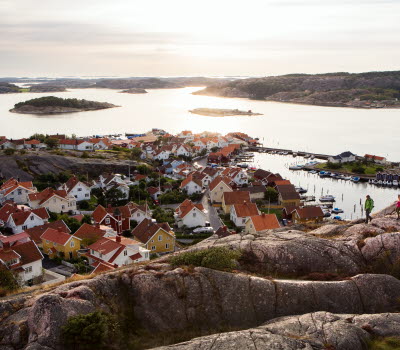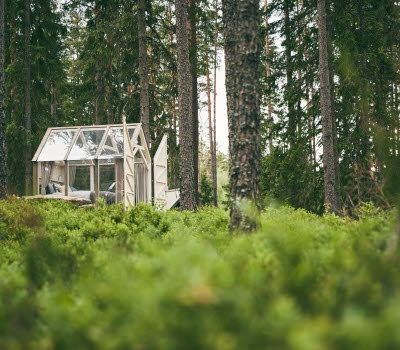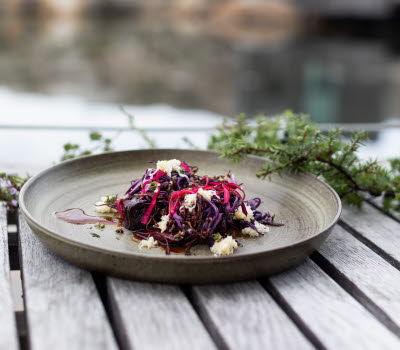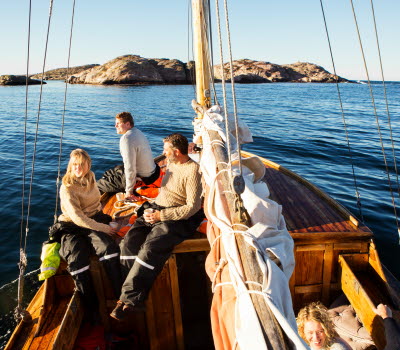Åstol
Tjörn
Åstol is the small island with the white wooden houses surrounded by rugged rocks rising from the sea. The island is easy to reach by ferry from Rönnäng, and is located between Tjörn and Marstrand on the coast of Bohuslän. A day trip is quite sufficient to walk around the traffic-free island and enjoy the beautiful views, the boathouses and the dramatic rocks.
Volcanic rock island
Åstol is a very striking sight, whether you’ve climbed up to a viewpoint on Tjörn and looked out over the sea toward the horizon or you’ve travelled to the island via Marstrandsfjord. The unique rocky island looks as if it has been thrust out of Västerhavet, complete with a mass of white wooden houses which appear to cover almost the entire island.
Photographer: Katja Ragnstam
Its bedrock consists of smoothly eroded amphibolite, a volcanic rock type, on which plants have managed to grow in small valleys despite the harsh conditions here. The light from the surrounding sea gives the whole island a very special atmosphere. Over the years, the capricious weather has governed conditions for the inhabitants on Åstol, who have defied the forces of nature and given life to the island.
Narrow streets and invigorating dips
A sense of calm is the first impression you have as you step off the ferry in the deep horse-shoe harbour. The narrow, car-free streets meander between the houses and in the middle of the island there is a lush little park with a memorial to lost fishermen. Klockareudden has a natural rock pool filled with salt-water, a water slide and a sandy bottom. Pater Nosterskären to the west can be seen from the water tower on Store Varn, and Carlstens Fortress can be seen on Marstrand, to the south.
Photographer: Jonas Ingman
Café and gallery
Although the golden days of fishing have long since passed, this rugged island still attracts many people with its tranquil atmosphere. There are now cafés, outdoor terraces, a gallery, a grocery store and a library where fishing fleets have docked over the centuries.
Old fishing community
Åstol was first inhabited in the mid-18th century in connection with one of the great herring periods. The fishing industry continued to provide a good livelihood for the island people, and during the heydays there were around 500 inhabitants. More than 20 large steel trawlers had their home port on Åstol in the 1960s. The fishing industry declined during the 1970s and many people moved off the island, but new residents arrived to enjoy the magic of the place during the summer. The island is now vibrant all year round and fishing provides crayfish, crabs and what is sometimes called the sea's black gold - lobsters.
Photographer: Anders Jonsson
Tjörns Turistbyrå
Kroksdalsvägen 1
47180 Skärhamn
Phone: +46 304 60 10 16
E-mail: turistbyran@tjorn.se
Website: sodrabohuslan.com







